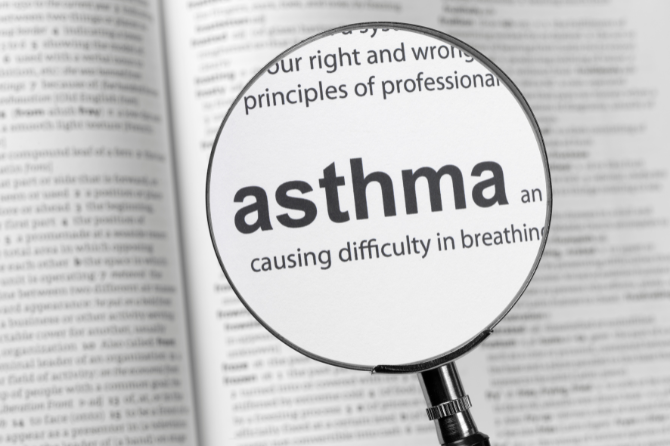
Have you ever wondered why your asthma symptoms seem to worsen when it rains? Or whether asthma is more troublesome in summer or winter? If so, you’re not alone. Weather-induced asthma is a topic that affects many individuals with asthma, and understanding its triggers and impacts is crucial for better management. In this comprehensive guide, we’ll explore the connection between weather and asthma, delve into the best climates for asthma sufferers, and provide valuable insights to help you deal with weather-induced asthma effectively.
Why do I get asthma when it rains?
Rainfall can have a surprising impact on asthma symptoms. Several factors contribute to this phenomenon:
Increased Humidity: Rain raises humidity levels in the air. High humidity can irritate the airways, making it harder for individuals with asthma to breathe. The moist air can lead to bronchoconstriction, triggering symptoms.
Airborne Allergens: Rainfall can stir up allergens like pollen and mold. As raindrops hit the ground, they release these allergens into the air, potentially causing asthma symptoms in those with allergic asthma.
Indoor Triggers: Rainy days often mean spending more time indoors. Indoor allergens such as dust mites, pet dander, and indoor mold can become more concentrated indoors, exacerbating asthma symptoms.
Airway Sensitivity: Some individuals have airways that are more sensitive to changes in weather and humidity. For them, the moist air from rain can trigger bronchial spasms and inflammation.
To dive deeper into this topic and understand how to manage asthma on rainy days, check out this CDC article.
Is asthma worse in summer or winter?
The severity of asthma symptoms can vary depending on the season, and it’s essential to be prepared:
Summer: Asthma symptoms can worsen in summer due to factors like high temperatures, increased air pollution, and exposure to outdoor allergens such as pollen. Staying indoors during peak pollen times and using air conditioning with proper filtration can help.
Winter: Cold, dry air in winter can trigger asthma symptoms in some individuals. Additionally, spending more time indoors can expose you to indoor allergens. Properly humidifying indoor air and avoiding tobacco smoke can help mitigate symptoms.
For more information on seasonal asthma triggers, refer to this Asthma and Allergy Foundation of America resource.
What is the best climate for asthma sufferers?
The ideal climate for asthma sufferers can vary from person to person. However, some general guidelines can help:
Moderate Temperatures: Climates with moderate temperatures, neither too hot nor too cold, are generally more comfortable for individuals with asthma.
Low Humidity: Lower humidity levels can be beneficial, as high humidity can trigger symptoms.
Stable Weather: Areas with stable, predictable weather patterns can be easier for asthma management.
To explore specific locations and climates that may be suitable for asthma sufferers, consult this article from the American Lung Association.
Does eosinophilic asthma go away?
Eosinophilic asthma is a type of asthma characterized by high levels of eosinophils in the blood and airways. While it may not completely “go away,” it can be managed effectively:
Treatment: Eosinophilic asthma often responds well to medications like corticosteroids and biologics. Working with your healthcare provider to find the right treatment plan is key.
Avoid Triggers: Identifying and avoiding asthma triggers, such as allergens or irritants, can help control symptoms.
Lifestyle Modifications: Healthy lifestyle choices, such as regular exercise and a balanced diet, can complement asthma management.
How to help weather-induced asthma?
Managing weather-induced asthma requires a proactive approach:
Check Weather Forecasts: Stay informed about weather conditions in your area, especially on rainy or high-humidity days.
Medication: Ensure you have your prescribed asthma medications on hand and use them as directed by your healthcare provider.
Indoor Allergen Control: Minimize indoor allergens by regularly cleaning and using air purifiers with HEPA filters.
Consult Your Healthcare Provider: Work closely with your healthcare provider to develop a personalized asthma action plan.
To explore more tips on managing weather-induced asthma effectively, refer to this Mayo Clinic article.
Conclusion:
In conclusion, weather-induced asthma can be challenging, but understanding its triggers and implementing the right strategies can significantly improve your quality of life. Remember to consult your healthcare provider for personalized advice, and always stay informed about the weather conditions in your area.
For more information about managing asthma or to seek expert guidance, please visit the OakBend Medical Center website or call us at 281-341-3000. Our dedicated team is here to assist you in your journey towards better asthma management.
Leave a reply








Dr. Obodubu Monday is recognised all over the world of marine kingdom, As one of the top fortunate and most powerful spell casters doctor of charms casts from the beginning of his ancestors ship until now Dr. Obodubu Monday lives strong among all other spell casters, there have never been any form of impossibility beyond the control of Dr. Obodubu Monday it doesn’t matter the distance of the person with the problems or situation, all you have to do is believe in the spell casting Dr. Obodubu Monday cast that works, he always warns never to get his charms cast if you do not believe or unable to follow his instruction. it is the assignment of the native doctor Dr. Obodubu Monday to offer services to those in need of spiritual assistance not minding the gravity of your situations or distance as long as water, sea, ocean, lake, river, sand, etc. are near you, then your problems of life would be controlled under your foot. if you need any spiritual help on any of these WhatsApp Doctor Obodubu on : +234 705 993 7909
ReplyGet Your Love Back
Fruit Of The Womb
Fibroid
Business Boom
Financial Breakthrough
Get Rich Without Ritual
Do As I Say
Bad Dream
Promise And Fail
Epilepsy
Land/Court Case
Mental Disorder
Political Appointment
Visa Approval
Cancer
Examination Success
Spend And Get Back
Good Luck
Natural Neath
Hypertension
Stroke
Sickle cell
Impotency
Win Court case
Promotion At Work
Commanding Tone
Protection Ring
Marriage Success
Love Ring
Favour Ring
Recover Lost Glory
Spiritual Power For Men Of God
Travel Success Ring
Job Success
lottery/ win
And Many, More
make haste to Dr Monday on WhatsApp +234 705 993 7909 for spiritual problem today and you will surely get solution to all your predicament
I AM CURED FROM HERPES VIRUS
For many years, I struggled with the physical pain and emotional toll of herpes. The constant outbreaks and the stigma attached to the virus left me feeling hopeless. Despite trying various conventional treatments and medications, nothing provided the lasting relief I desperately needed. Then, I came across a testimony in a blog regarding Dr Awase and his herbal medicine on how he cures diverse diseases, viruses and illnesses. Intrigued, I decided to explore this alternative path to healing. I decided to reach out to the herbal Dr.
I placed an order, got the medication and everything turned out to work out perfectly within 14days of taking the herbal medicine. Couldn’t be more grateful to God for using him to cure me from this lifelong virus. Today, I am overjoyed to say that I am completely free from the Herpes virus. To anyone struggling with herpes, I want you to know that there is hope. He also cures PCOS, HPV, PSORIASIS, ENDO, OVARIAN CYST and a lot more. You can reach out through
WhatsApp:- +2349074997110
Replydr.awaseherbalhome@gmail. com